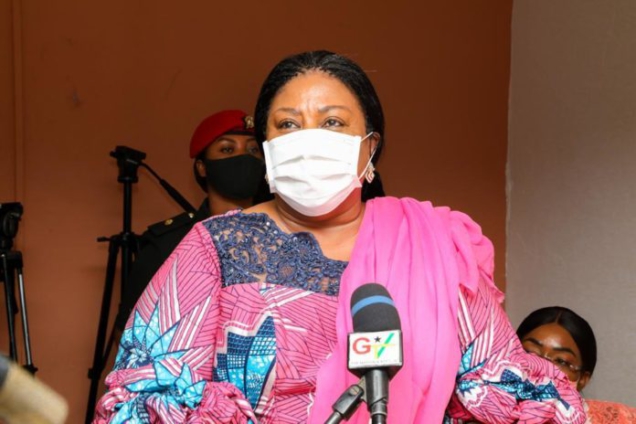The First Lady, Rebecca Akufo-Addo has on Tuesday launched a report on “Cancer in Sub-Saharan Africa: A Lancet Oncology Commission,” in Accra.
The report called on all stakeholders, especially policy makers in the health sector to unite and chart a collective response to the increasing burden of cancer in Africa.
The Commission, which comprised of national and international experts from academia and healthcare, presented a framework that can be used by governments and non-governmental organisations to increase access to cancer care, accelerate cancer prevention and increase survival in Sub-Saharan Africa.
Professor Wilfred Ngwa, the Commission Chair, said projected trends underscored the devastating costs of inaction on cancer incidence rates and cancer mortality in sub-Saharan Africa.
Professor Ngwa said while the list of barriers hindering effective cancer control in the region was long, the pursuit of robust cancer registries, effective cancer control plans, early cancer screening and detection, and the integration of palliative care into the cancer care pathway was critical.
He called for greater focus on the implementation of telemedicine and new technologies, building and training the oncology workforce, and boosting cancer research to radically improve cancer care across the region.
“Digital health is already being adopted at a high rate as seen in examples in Nigeria and South Africa, including in cancer care, where tele-oncology became a necessity for providing remote chemotherapy supervision, symptom management, and palliative care to many cancer patients.”
Dr Beatrice Wiafe Addai, Commission co-chair, said population knowledge and attitudes about cancer risk factors were critical to reducing the burden of cancer in sub-Saharan Africa.
She said public health campaigns needed to form an instrumental part of any effective cancer control programme to raise population awareness about harmful risk factors, and healthy habits and dispel misinformation.
“At the same time, transformative policies must be in place to foster cancer prevention uptake. Previous case studies have shown that civil societies could work with governments to design cancer awareness education programmes, scalable across the Sub-Saharan Africa in parallel with other initiatives,” she said.
Latest Stories
-
Postecoglou backs Bentancur appeal after ‘mistake’
31 mins -
#Manifesto debate: NDC to enact and pass National Climate Law – Prof Klutse
40 mins -
‘Everything a manager could wish for’ – Guardiola signs new deal
49 mins -
TEWU suspends strike after NLC directive, urges swift resolution of grievances
56 mins -
Netflix debuts Grain Media’s explosive film
1 hour -
‘Expired’ rice scandal: FDA is complicit; top officials must be fired – Ablakwa
2 hours -
#TheManifestoDebate: We’ll provide potable water, expand water distribution network – NDC
2 hours -
IPR Ghana@50: Pupils educated to keep the environment clean
2 hours -
PenTrust CEO named ‘Best Pensions CEO’, company wins ‘Scheme Administrator Award’ at Ghana Accountancy & Finance Awards 2024
3 hours -
Alan Kyerematen’s ‘Brighter Future for Health Professionals’ in Ghana Revealed in Bono
3 hours -
#TheManifestoDebate: NPP will ensure a safer, cleaner and greener environment – Dr Kokofu
3 hours -
2024 Election: Police to deal with individuals who will cause trouble – IGP
3 hours -
Seychelles President’s visit rekindles historical and diplomatic ties with Ghana
3 hours -
Election 2024: EC destroys defective ballot papers for Ahafo and Volta regions
3 hours -
2024 Election: I am sad EC disqualified me, but I endorse CPP’s candidate – PNP’s Nabla
4 hours

